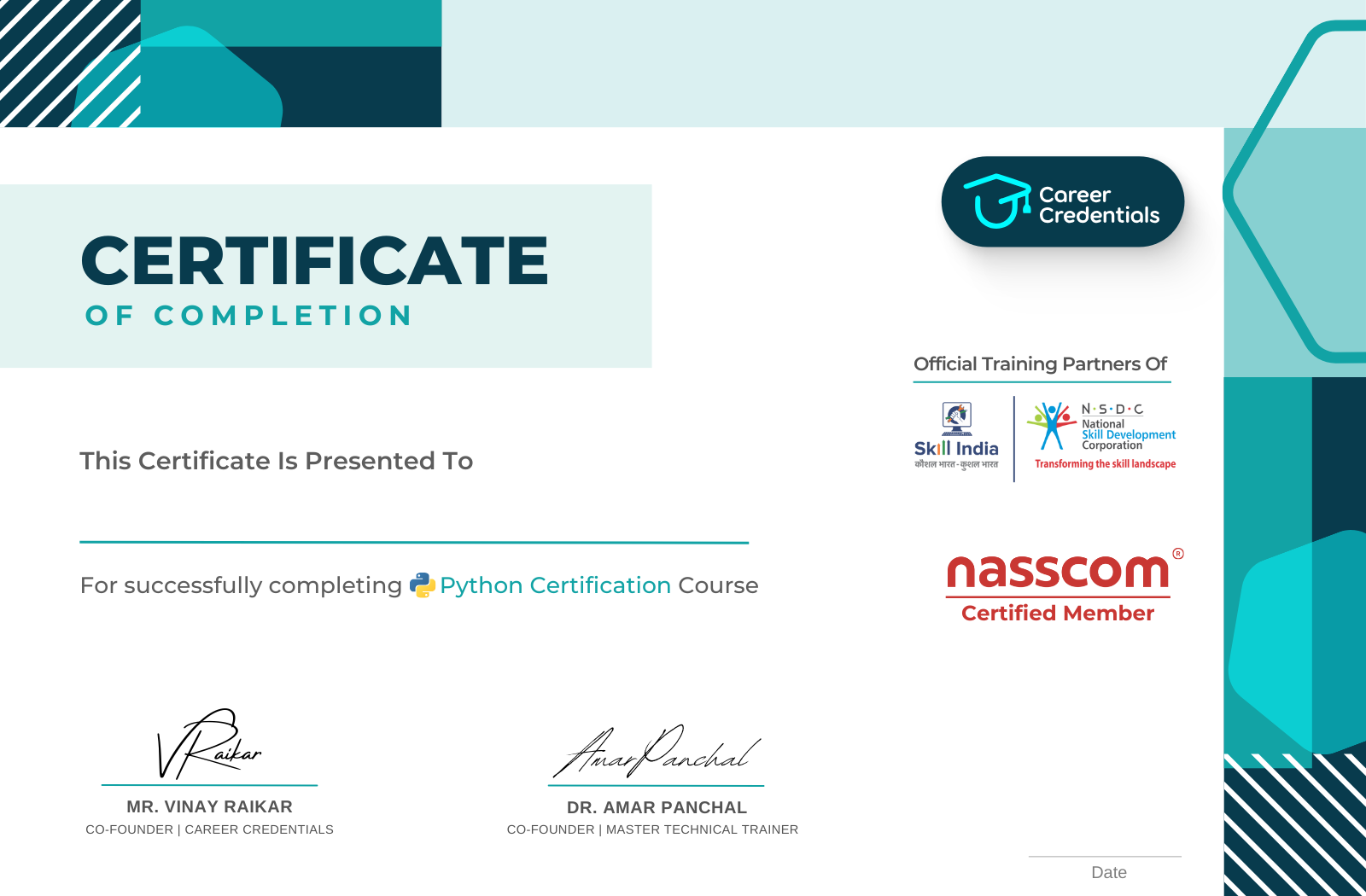Machine Learning Essentials with Python: From Theory to Practice
What Will You Learn?
In this Machine Learning course, you’ll explore the key principles and techniques of machine learning, moving from foundational concepts to practical skills. Starting with data preparation, you’ll learn how to clean, preprocess, and visualize data, creating a strong basis for building models. You’ll then delve into fundamental machine learning algorithms, covering both supervised and unsupervised learning approaches, while learning how to evaluate and fine-tune your models.
The course offers practical experience through four real-world projects: stock prediction, sales visualization, handwritten digit classification, and movie recommendation systems. These projects are carefully selected to provide a well-rounded understanding of machine learning applications in different domains. Guided by expert instructors, you’ll work on these projects to gain hands-on experience, using libraries like Scikit-Learn, Pandas, and Matplotlib.
By the end of this course, you’ll be equipped with both the theoretical knowledge and practical skills needed to build and deploy machine learning models, setting you up for success in data science roles.
Course Flow
The Machine Learning Fundamentals and Applications course begins with core concepts, including data preprocessing, visualization, and an introduction to supervised and unsupervised learning. You’ll explore essential algorithms, from regression to clustering, along with model evaluation and tuning techniques.
This foundation leads into four real-world projects: stock prediction, sales visualization, handwritten digit classification, and a movie recommendation system. Guided by Dr. Amar Panchal, these projects provide hands-on experience with industry-relevant skills. Additionally, independent assignments reinforce key concepts, ensuring you’re equipped with both technical knowledge and practical application for real-world readiness.
Machine Learning with Python Syllabus
Module 1: Introduction To Machine Learning And AI
- Introduction to Machine Learning and AI Supervised
- Supervised, Unsupervised, and Reinforcement Learning
- Data preprocessing and feature engineering
- Evaluation metrics and model validation
- Introduction to Python libraries for Machine Learning (NumPy, Pandas, Scikit-learn)
Module 2: Supervised Learning Algorithms
- Linear Regression
- Logistic Regression
- Decision Trees and Random Forests
- Naive Bayes Classifier
- Support Vector Machines
Module 3: Unsupervised Learning Algorithms
- Clustering Algorithms (K-Means, DBSCAN, Hierarchical Clustering)
- Dimensionality Reduction (Principal Component Analysis, t-SNE)
- Association Rule Learning (Apriori, Eclat)
- Anomaly Detection
Module 4: Introduction to Neural Networks
- Multi-layer Perceptron (MLP)
- Convolutional Neural Networks (CNN)
- Recurrent Neural Networks (RNN)
- Transfer Learning
Module 5: Natural Language Processing (NLP)
- Text Preprocessing
- Bag-of-Words and Word Embeddings
- Sentiment Analysis
- Named Entity Recognition
Module 6: Computer Vision
- Image Processing and Feature Extraction
- Object Detection and Image Classification
- Image Segmentation
- Facial Recognition
- Image Generation and Style Transfer
Module 7: Reinforcement Learning
- Markov Decision Processes (MDPs)
- Q-Learning and Deep Q-Learning
- Policy Gradient Methods
- Applications of Reinforcement Learning
Module 8: Deploying ML Models And AI Ethics
- Model Deployment and Serving (REST APIs, Docker, Cloud Platforms)
- Interpretability and Explainability of ML Models
- Bias and Fairness in AI
- Privacy and Security Considerations
- Future Trends in Machine Learning and AI
Machine Learning Projects
Project 1: Stock Prediction
- Use regression algorithms to predict stock prices based on historical data.
- Apply EDA and preprocessing techniques learned in Modules 2 and 3.
Project 2: Sales Visualization
- Use visualization techniques to analyze and visualize sales data trends.
- Demonstrate skills in data exploration and visualization (Modules 2 and 3).
Project 3: Classification of Handwritten Digits
- Build a digit classification model using neural networks or SVM.
- Apply skills in data preprocessing, feature scaling, and model evaluation (Modules 2, 4, and 6).
Project 4: Movie Recommendation System
- Develop a recommendation system using collaborative filtering or content-based filtering.
- Combine skills in unsupervised learning, clustering, and data preprocessing (Modules 2, 5, and 6).
What Students Say...
Certifications

Career Credentials
Python Certified

NSDC
National Certification
- Level
Intermediate
- Total Enrolled
259
- Duration
2 Months
- Mode
Online
A course by
Material Includes
- Course Syllabus and Video Lectures: Comprehensive course outline and recorded sessions by Dr. Amar Panchal.
- Hands-On Project Kits: Resources and templates for the 4 industry-level projects, covering web development, data analysis, and automation.
Prerequisites
- Basic understanding of programming concepts.
- A computer with internet access for coding and online resources.
- Willingness to learn and apply agile development practices.
Get Expert Career Guidance for Free!!!
Join us on Free 1:1 Counselling session where we provide personalised Career Guidance for Every Student


